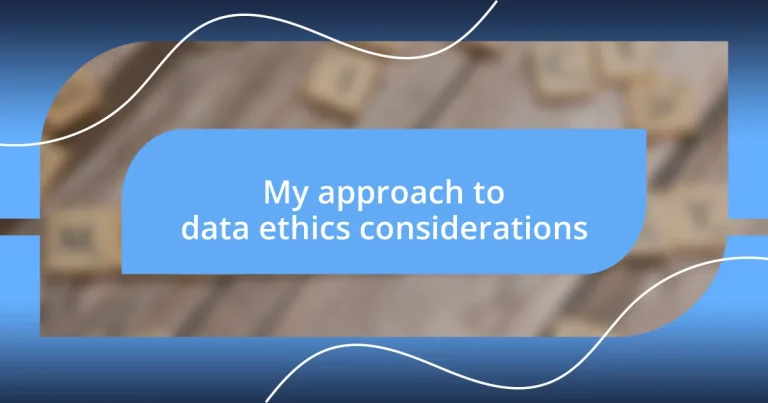Key takeaways:
- Emphasized the importance of transparency and accountability in data usage to build trust and ensure ethical practices.
- Identified major ethical challenges, including privacy concerns, bias in data collection, and unclear data ownership rights.
- Stressed the need for stakeholder engagement and regular evaluations to create a responsible and inclusive data environment.
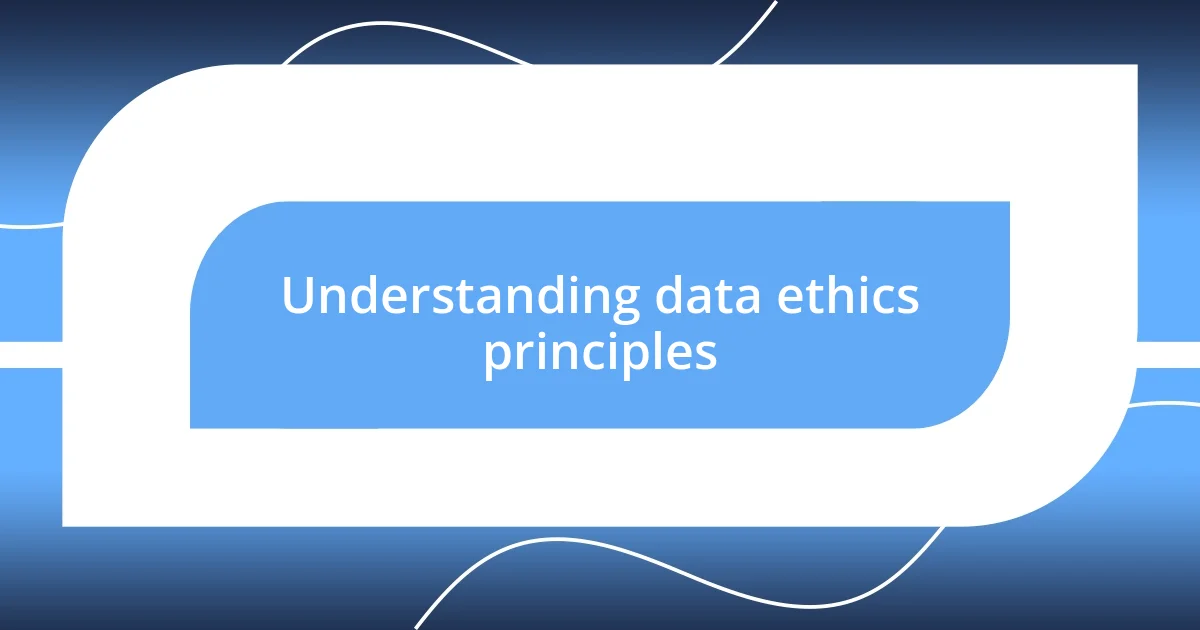
Understanding data ethics principles
Understanding data ethics principles is crucial in today’s digital landscape where personal information is being generated at an exponential rate. I often find myself questioning: how much of our data is truly ours? This thought underscores the importance of ownership and consent, emphasizing that individuals should have control over their personal data and understanding how it’s being used.
One key principle I value is transparency. It reminds me of a time I signed up for an online service and was shocked by the lengthy terms and conditions that I, like many others, often skimmed through. It raises an important point—many of us don’t fully comprehend how our data may be utilized or shared. When organizations commit to transparency, they foster trust and build better relationships with users, which is vital.
Another principle that resonates deeply with me is accountability. I remember collaborating on a data project where ethical considerations came into play, and it was eye-opening to realize how our decisions could impact actual lives. This experience taught me that those who collect and process data must be responsible for its ethical use, ensuring that the data is treated with respect and integrity. What’s more empowering than knowing that our actions can contribute to a fairer, more ethical digital world?
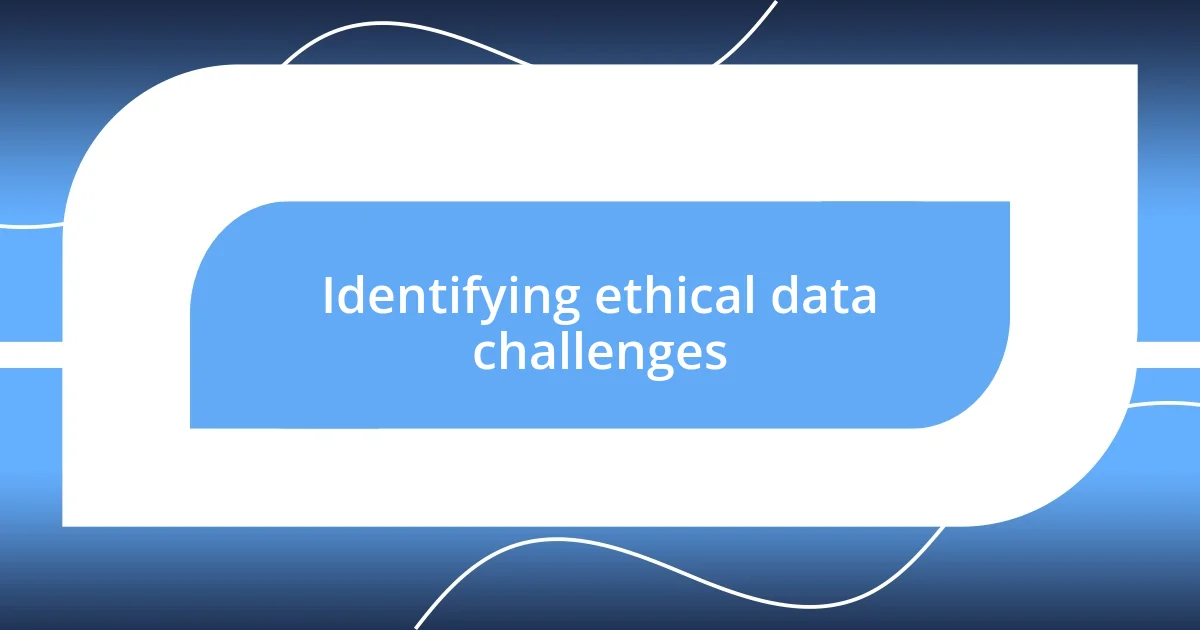
Identifying ethical data challenges
Identifying ethical data challenges starts with recognizing the various dimensions of data usage. I remember a conversation I had with a colleague about the data we often take for granted. It was surprising to realize how easy it is to overlook the implications of data collection—especially when sensitive personal information is involved. Sometimes, I feel overwhelmed by the sheer volume of data generated every day, which can lead to ethical dilemmas about privacy and consent.
In my experience, one pressing challenge is the potential for bias in data collection and analysis. I once attended a workshop where we delved into how skewed datasets could perpetuate discrimination. This made me reflect on our responsibility to ensure fairness, particularly when the data informs critical decisions. We have to ask ourselves: are we actively working to mitigate bias, or are we complicit in exacerbating it?
A significant ethical challenge that often goes unrecognized is the issue of data ownership. I recall a project where we leveraged user-generated content without fully considering the users’ rights. When I think back, it raises an uncomfortable question: do we truly respect individuals’ rights to their own data? This realization underscores the need for ongoing dialogue about ethical data practices, so we can navigate these complex issues together.
| Ethical Challenge | Description |
|---|---|
| Privacy Concerns | Understanding how data is collected and used can impact personal privacy. |
| Bias in Data | Skewed datasets can perpetuate discrimination in decision-making processes. |
| Data Ownership | Individuals often lack clarity on their rights regarding personal data. |
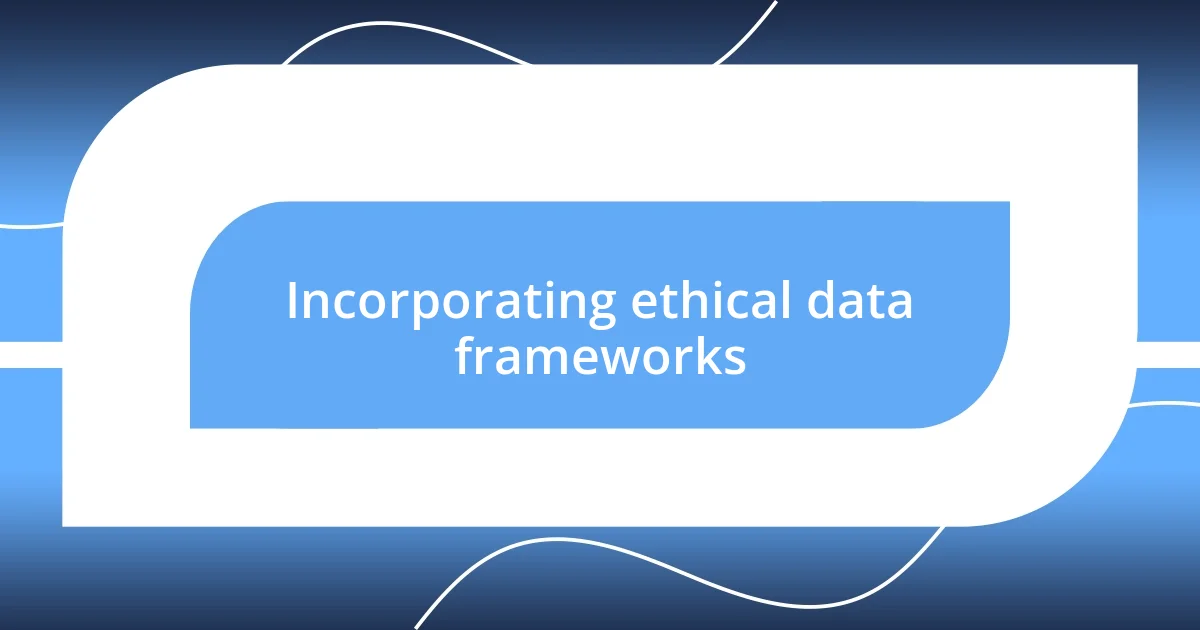
Incorporating ethical data frameworks
Incorporating ethical data frameworks requires a commitment to not only understanding but actively applying principles that promote responsible data usage. I recall a time when I participated in a brainstorming session about developing a new product. We quickly learned that integrating ethical data practices into our design process strengthened our overall vision. When we build data ethics into the foundation of our projects, it not only shields users but elevates our brand’s reputation.
Here are some key components to consider when implementing ethical data frameworks:
- Data Minimization: Collect only what’s necessary. I learned this the hard way while working on a project with excessive data requests, leading to confusion and frustration among users.
- User Consent: Always ensure users are informed before engaging with their data. I once overlooked this during a campaign, and the backlash reminded me of the trust we hold.
- Regular Audits: Periodic assessments help identify biases and gaps. I take this seriously because I want my work to reflect fairness.
- Stakeholder Involvement: Engage various perspectives, including users, to ensure diverse viewpoints are accommodated. It’s enlightening how different voices can reshape the narrative for the better.
Integrating these practices not only informs ethical decision-making but also fosters a community where users feel valued and respected. I believe it’s indispensable to create a data environment where ethics come first. When everyone plays their part, the results can be empowering, enriching the relationships we build with our audience.
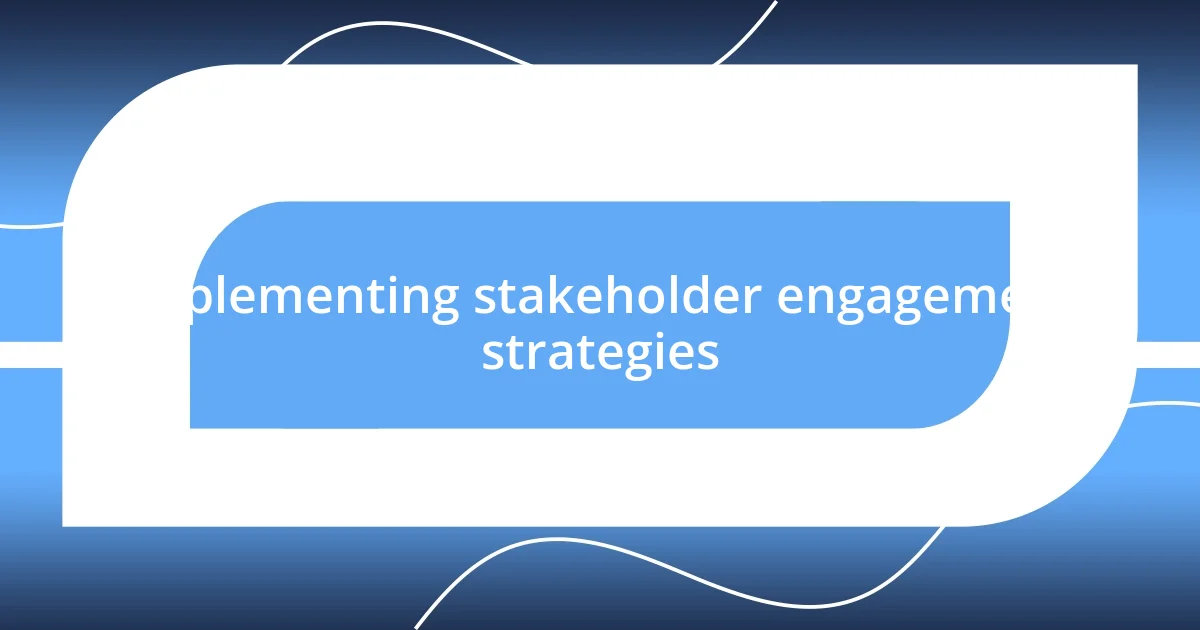
Implementing stakeholder engagement strategies
When I think about stakeholder engagement strategies, I can’t help but reflect on a project where we actively sought input from community members before launching a new data initiative. It was eye-opening to hear their concerns firsthand, reminding me that without their voices, we risk losing critical insights into how our data practices impact real lives. I often wonder, how can we claim to be data-driven if we aren’t engaging those most affected by our decisions?
Incorporating a variety of stakeholders—including users, regulators, and those represented in the data—enhances the depth of our ethical considerations. I remember sitting in a diverse focus group where participants shared differing experiences and philosophies regarding data trust. That session not only broadened my perspective but also emphasized the importance of co-creating solutions. Why settle for a narrow view when embracing diverse thoughts can lead to richer outcomes?
Ultimately, sharing updates and maintaining a transparent dialogue with stakeholders is crucial. During one of our follow-up meetings, I shared the adjustments we made based on their feedback, and the sense of ownership and partnership was palpable. It struck me then—how can we truly build trust if we don’t keep the conversation going? Engaging stakeholders fosters accountability and creates a community around ethical data practices, which is something I’m passionate about nurturing.
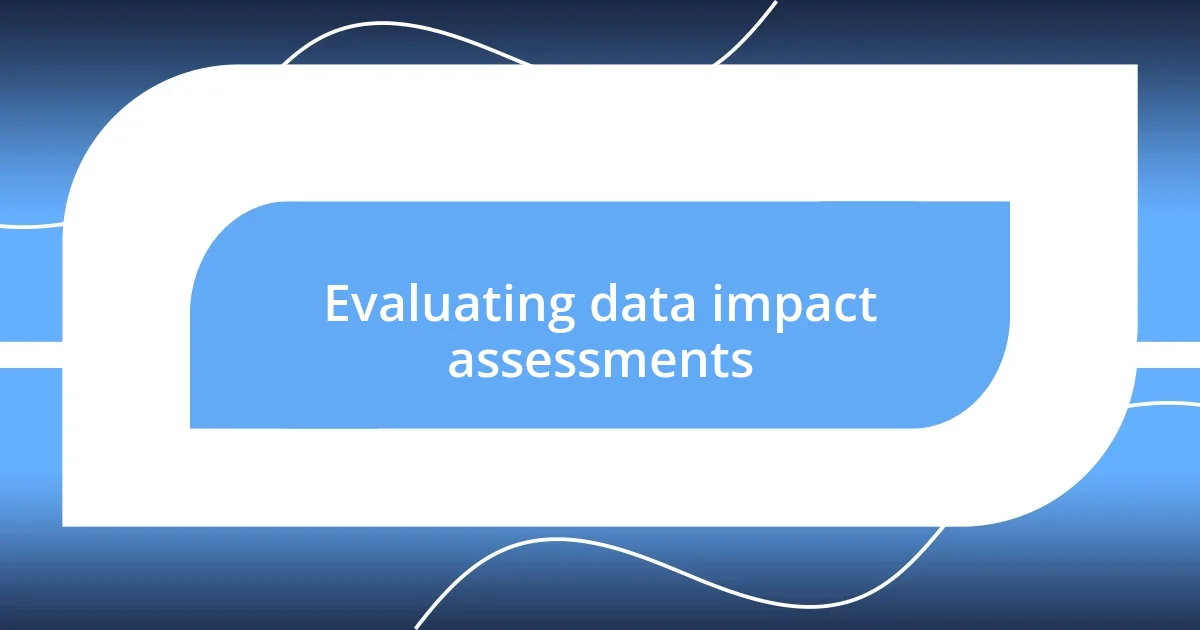
Evaluating data impact assessments
Evaluating data impact assessments is a vital process that can’t be overlooked. I recall a project where we performed an in-depth assessment before launch; it unveiled several unintended consequences of our data collection methods. By tackling potential issues upfront, we not only protected users’ rights but also positioned ourselves as responsible innovators in the eyes of the public.
It’s essential to ask—how well do we understand the long-term implications of our data practices? In one instance, I participated in a workshop where we dissected previous assessments. This collaborative effort was illuminating; we identified patterns of neglecting certain user demographics. It truly reinforced that we must account for diverse groups to avoid perpetuating biases.
As I think about the ongoing journey of data ethics, I find that regular evaluations create a safety net. After one such review, my team and I uncovered a surprising lack of user awareness regarding data usage. Addressing this gap felt like a personal mission, and it made me realize that our assessments should be dynamic, evolving with societal norms and expectations. Embracing this iterative approach ensures we stay aligned with both ethical standards and the trust of our users.












